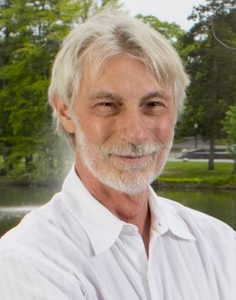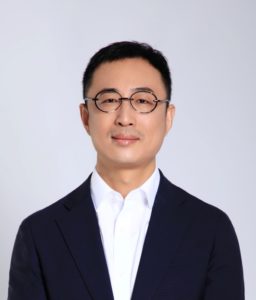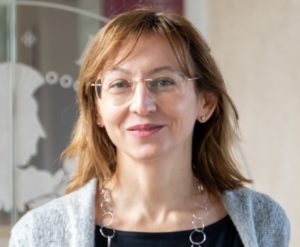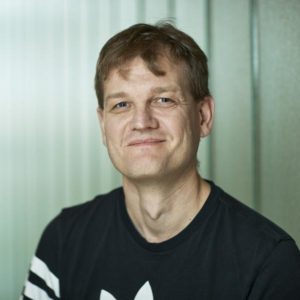Donald F. Towsley, IEEE/ACM Fellow, University of Massachusetts, Amherst
Bio
Don Towsley holds a B.A. in Physics (1971) and a Ph.D. in Computer Science (1975) from University of Texas. He is currently a Distinguished Professor at the University of Massachusetts in the College of Information & Computer Sciences. He has held visiting positions at numerous universities and research labs including University of Paris VI, IBM Research, AT&T Research, Microsoft Research, and INRIA. His research interests include security, quantum communications, networks and performance evaluation.
He is a co-founder ACM Transactions on Modeling and Performance Evaluation of Computing Systems (ToMPECS) and served as one of its first co-Editor in Chiefs. He has served as Editor-in-Chief of the IEEE/ACM Transactions on Networking and on numerous other editorial boards. He has served as Program Co-chair for numerous conferences and on the program committees of many other.
He is a corresponding member of the Brazilian Academy of Sciences and has received numerous IEEE and ACM awards including the 2007 IEEE Koji Kobayashi Award, 2007 ACM SIGMETRICS Achievement Award, and 2008 ACM SIGCOMM Achievement Award. He has also received numerous best paper awards including the IEEE Communications Society 1998 William Bennett Paper Award, a 2008 ACM SIGCOMM Test of Time Award, a 2018 ACM MOBICOM Test of Time Awards the 2012 ACM SIGMETRICS Test of Time Award and five ACM SIGMETRICS Best paper awards. Last, he is Fellow of both the ACM and IEEE.
Title
Quality of Service in the Coming Quantum Internet
Abstract
Quantum information processing is at the cusp of having significant impact on technology and society in the form of providing unbreakable security, ultra-high-precision distributed sensing with applications to metrology and science discovery (e.g., LIGO), and polynomial speeds up on search with implications to big data. Most of these applications are enabled by high-rate distributed shared entanglement between pairs and groups of users. A critical missing component that prevents crossing this threshold is a distributed infrastructure in the form of a world-wide “Quantum Internet”. This motivates our study of quantum networks, namely what is the right architecture and how it should operate.
In this talk I will focus on a specific class of quantum networks – those that generate and distribute entangled quantum states to pairs or groups of users. Their design faces two critical challenges. The first is that the successful transmission of quantum information over an optical fiber decays exponentially in the length of the fiber. The second is that even when successfully transmitted, the quality of the quantum information, measured as fidelity, can significantly degrade due to processing noise, channel noise, and buffer memory deficiencies. Thus, a quantum network poses challenges in providing quality of service, characterized by a tradeoff in throughput delivered to users and the quality (fidelity) of the quantum information delivered to users. Focusing on the QoS issues, I will present opportunities and challenges related to resource sharing in a quantum network. I will end the talk with a list of open problems.
Kui Ren, IEEE/ACM Fellow, Zhejiang University, China
Bio
Kui Ren is Professor and Associate Dean of College of Computer Science and Technology at Zhejiang University, where he also directs the Institute of Cyber Science and Technology. Before that, he was SUNY Empire Innovation Professor at State University of New York at Buffalo. He received his PhD degree in Electrical and Computer Engineering from Worcester Polytechnic Institute. Kui’s current research interests include Data Security, IoT Security, AI Security, and Privacy. He received many recognitions including Guohua Distinguished Scholar Award of ZJU, IEEE CISTC Technical Recognition Award, SUNY Chancellor’s Research Excellence Award, Sigma Xi Research Excellence Award, NSF CAREER Award, etc. Kui has published extensively in peer-reviewed journals and conferences and received the Test-of-time Paper Award from IEEE INFOCOM and many Best Paper Awards from IEEE and ACM, including ACM MobiSys, IEEE ICDCS, IEEE ICNP, IEEE Globecom, ACM/IEEE IWQoS, etc. His h-index is 82, with a total citation exceeding 39,000 according to Google Scholar. Kui is a Fellow of ACM and IEEE. He is a frequent reviewer for funding agencies internationally and serves on the editorial boards of many IEEE and ACM journals. Among others, he currently serves as Chair of SIGSAC of ACM China Council, a member of ACM ASIACCS steering committee, and a member of S&T Committee of Ministry of Education of China.
Title
DeepFake detection: applicability and robustness
Abstract
With the rapid development of generative deep learning methods, face and voice manipulation techniques, also known as DeepFake, are getting more and more powerful. These techniques have been capitalized by adversaries for malicious applications such as financial fraud, social panic, and even election manipulation. Growing concerns about the misuse of DeepFake techniques have led to an urgent need for reliable and practical DeepFake detection systems. In this talk, I will first go through previous work on DeepFake generation and detection to illustrate how they have evolved over the years. Then, I will share our own journey to develop a highly reliable DeepFake detection system and present a large-scale evaluation of existing detection methods from the perspective of applicability and robustness. I will also discuss the challenges of DeepFake detection and possible directions to address them.
Carla Fabiana Chiasserini, IEEE Fellow, Politecnico di Torino, Italy
Bio
Carla Fabiana Chiasserini is Full Professor at Politecnico di Torino, Italy, and a Research Associate with the Italian National Research Council (CNR). She was a Visiting Researcher at UC San Diego (1998-2003), and a Visiting Professor at Monash University (2012,2016) and at the Berlin Technische Universität (2021). She is a Fellow of the IEEE and a Senior Member of ACM. Her research interests include 5G/6G Networks, Mobile Edge Computing, Networking for machine learning, and Connected Vehicles. She has published over 350 journal articles and referred conference papers, and has received several awards for her scientific work. Currently, she serves as Editor-in-Chief of the Computer Communications journal and as an Associate Editor of the IEEE/ACM Transactions on Networking. Carla is also a member of the Steering Committee of the IEEE Transactions on Network Science and Engineering and of the ACM MobiHoc conference. She has served for several years on the Editorial Board of journals such as the IEEE Transactions on Wireless Networks and the IEEE Transactions on Mobile Computing, and she has been Co-Guest Editor of a number of journals special issues. Carla is/has been involved in may national and International research projects, either as a coordinator or a PI, including the EU H2020 5G-Crosshaul, 5G-TRANSFORMER, I-REACT, 5GROWTH, RAINBOW, and SEMANTIC projects. For more information, please refer to: https://www.det.polito.it/personale/scheda/(nominativo)/carla.chiasserini.
Title
Network Configuration for High-performance Distributed Machine Learning
Abstract
Distributed machine learning implies splitting a learning process among a number of computing nodes. Distributed learning, however, may lead to significant communication overhead, or to learners converging to different models. Thus, a widely adopted approach to distributed machine learning is to adapt the training of machine learning models to the network, so as to reduce the overhead due to the transfer of the model parameters. However, the emerging concept of intelligent edge makes it possible to take a different approach: to build a logical network topology around the learning task to perform.
This talk will introduce such an innovative concept, and present a methodology to model the relevant aspects of supervised machine learning, accounting for both nodes that can contribute to the completion of the learning task by processing data (a.k.a. learners) and nodes that can provide data. We then address the problem of selecting which nodes, namely, learners and data providers, should contribute to the learning task, and the number of iterations duration to perform, to minimize the learning cost while satisfying the target values of accuracy and learning time. Besides showing important properties of the problem, we present a heuristic, and characterize its complexity, approximation ratio, and performance. The talk will then discuss additional approaches to distributed learning, and how networks and edge computing can effectively be used to support such learning paradigm.
Pål Halvorsen, SimulaMet; and Oslo Metropolitan University, Norway
Bio
Pål Halvorsen is a chief research scientist at SimulaMet, a professor at OsloMet University, and a professor II at University of Oslo, all in Norway. He received his doctoral degree (Dr.Scient.) in 2001 from University of Oslo, Norway. At SimulaMet, he is currently leading the Holistic Systems research department, which investigates challenges of complete end-to-end pipelines with particular focus on sport and medical applications. In this respect, his current research interests span several areas in distributed (multimedia) systems and content analysis from a performance and efficiency point of view. He is a member of the IEEE and ACM. He has served as an editor for IEEE Transactions on multimedia, and has been member of a large number of conference program and organising committees. In addition. he has co-founded three companies, where he also currently is the CEO of Forzasys AS (sports technology) and a board member of Augere Medical AS (medical technology). More information about authored papers, supervised students, teaching and community services can be found at https://home.simula.no/~paalh.
Title
From a need, to an idea, to a complete system: a perspective based on real-world applications
Abstract
Researchers and developers have been talking about what determines a good system in various aspects for a long time, and eventually, it is all about quality. We are interested in quality throughout the entire holistic system, from data production to data consumption, and we have for several years aimed to solve real-world problems with a focus on both functional and non-functional requirements. This includes optimizing the various steps of both workflow and computing pipelines.
In this talk, we will address quality at various levels and aspects within a holistic system. We will highlight some examples starting from challenges in society, using sports and health as showcases, via researching solutions where we optimize workflows, system performance and user experiences, to observations of real use and deployments of the systems. In particular, the talk will cover a video and metadata system for commercial sport production and dissemination as an integrated, next generation live streaming and archive system. We will also use an example from an AI-based medical computer assisted diagnosis system to detect anomalies during colonoscopy examinations. The talk will look at various solutions and the state of the art, and will conclude with various open challenges.






